Crossing The Atlantic Before GPS

Laurel Cooper looks back to a first Atlantic crossing before the days of mass rallies and easy navigation.
The Atlantic Rally for Cruisers (ARC) started in 1986, but we did the first of our Atlantic crossings in 1981. After five years exploring the Mediterranean end to end we had learnt to trust our stoutly built 58ft steel ketch Fare Well; and to trust each other to get out of trouble. That summer, we cruised Greek waters, the Adriatic, Sicily and Tunisia.
In those days, we had very little by way of ‘modern’ technology. For navigation we had a sextant, binoculars, a gyro compass and a hand bearing compass, paper charts, pilot books, an anemometer and a through hull log. We had a VHF radio but not a long range radio. We also had radar and an autopilot. Communications home from shore was by snail mail, or pay-phone using a kilo of coins. For weather forecasts at sea, we called passing ships. We had no computer, no electronic charts, and no smartphones. We did not use Decca or Loran; GPS was only rolled out in the mid-1980s, and it was years before it become affordable for the average yacht.
Our seamanship skills were good and for first aid, as an ex-naval officer Bill had done the Ship Captain’s Paramedical course, and was allowed to carry an appropriate medicine chest, containing morphine, to be kept locked at all times. I had done a Red Cross first aid course and we carried a Ship Captain’s Medical Guide, which even told you how to amputate a limb. We were one of the first yachts of our size to have a fridge-freezer on board, but for washing we relied on laundrettes ashore.
This story is from the September 2017 edition of Yachting Monthly.
Start your 7-day Magzter GOLD free trial to access thousands of curated premium stories, and 9,000+ magazines and newspapers.
Already a subscriber ? Sign In
This story is from the September 2017 edition of Yachting Monthly.
Start your 7-day Magzter GOLD free trial to access thousands of curated premium stories, and 9,000+ magazines and newspapers.
Already a subscriber? Sign In

Midsummer on Hanö
This wonderful little island in the south-east of Sweden is a real gem off the beaten track
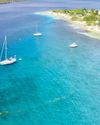
ADVENTURE SAILING TO HAITI
After spending two months in the Dominican Republic, Andy Brown sails west to Haïti bringing medical and school supplies to the town of Mole Saint Nicholas
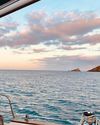
In celebration of bad sailing
New owner Monty Halls tests his sailing skills with his family aboard their Colvic 34 ketch, Sobek. A recently qualified Day Skipper, Monty faces a few unexpected challenges...

Winter brings excitement and opportunity
Oddity’s double glazing, insulation and heating create a warm, homely environment as I bash out this column.
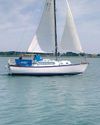
ADVENTURE MAISIE GOES TO GOES
To depart or not to depart? That is the question. Is it safer to stay, or suffer the wind and weather of a rough North Sea?
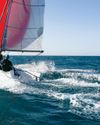
'MAYDAY, GRANDAD OVERBOARD!'
When David Richards and his grandson Henry went out racing from lowey, they didn't expect their sail to end with a lifeboat rescue
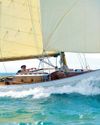
VERTUE
For a 25-footer, the Vertue has a huge reputation and has conquered every ocean. So what makes this little boat quite such an enduring success? Nic Compton finds out
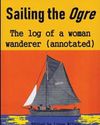
Sailing siblings
Mabel Stock, her brother Ralph, a friend Steve and an unnamed paying passenger passed through the Panama Canal in December 1919 on the sturdy Norwegian cutter Ogre. They were towed to a quiet anchorage in Balboa away from the boat traffic but within rowing distance of the shore.
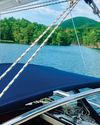
TECHNICAL MAINSAIL MODIFICATIONS
Safety and performance improved hugely when Mike Reynolds reduced the size of his mainsail and re-configured the systems controlling it
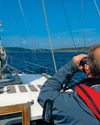
PILOTAGE DONE PROPERLY
Chartplotters are an amazing aid, but can detract from your real-world pilotage if not used with caution, says Justin Morton